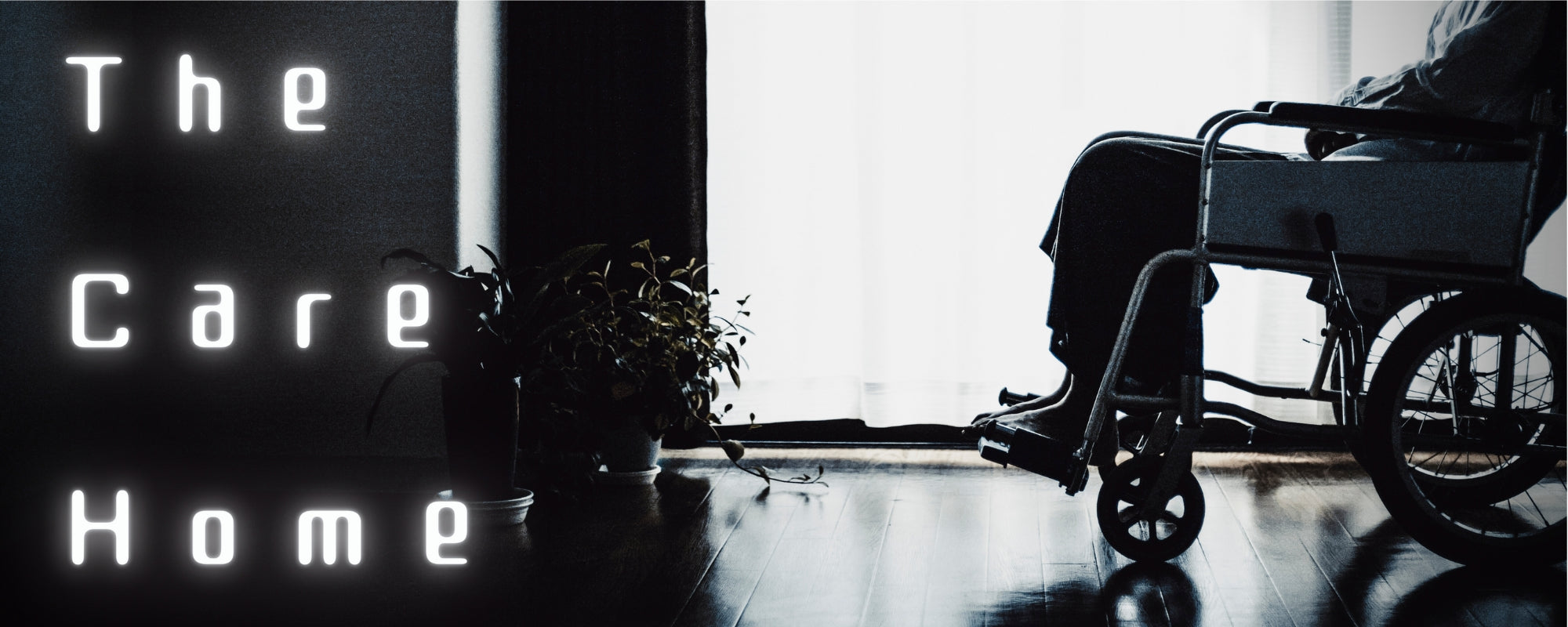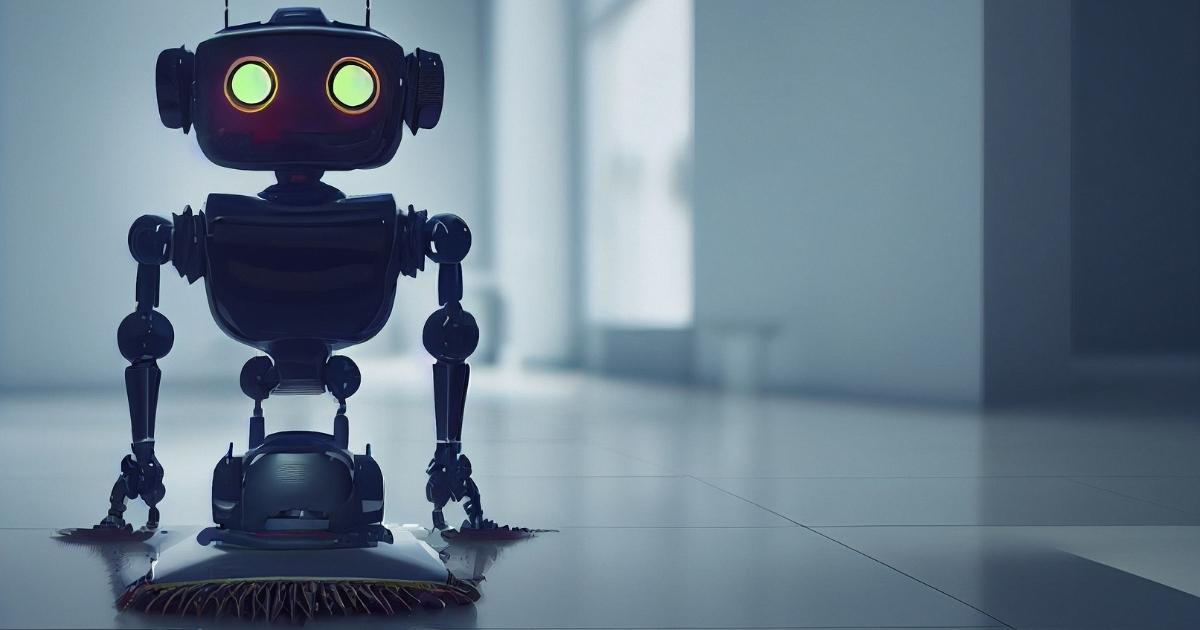

The Care Home
With the curtains drawn tight against the too-bright morning sun, the only pinprick of light came from the green LED in the ceiling. Sonia instinctively searched for it upon waking, a landmark confirming her location after a night spent dreaming of being trapped back home with her mother.
It was a simple thing, that little green light, but she took comfort in the reassurance it provided. She was safe, she had gotten out.
“I’d like to get dressed, please.”
The pause between her asking and the green light blinking in recognition only lasted a second longer than normal. The occasional delay was to be expected, with so many systems running at once to anticipate and provide for any support Sonia could need.
She knew that, and yet her heart clenched every time, anxiety twisting her stomach.
What if it stopped working? What if all the fail-safes failed? How would she get help? Where would she go? She could never go back home, and the idea of living in an institutional setting now that she had known independence—
The light blinked, and Sonia breathed easier as multi-jointed arms extended from the wall and ceiling.
One began removing her pajamas and changing her briefs while another brought a warm washcloth to clean her face. It felt unfathomably good, wiping the accumulated sleep from her eyes.
People often assumed it was her inability to walk that caused Sonia the most inconvenience, or being unable to dress and feed herself, but it was things like this. Little things she used to be able to do, like raising her hand to her face to wipe her own eyes, movements she had once been able to do that were now impossible thanks to the progression of her muscle deterioration.
A skirt was pulled up over her legs.
Sonia frowned as the washcloth was taken away for sanitizing. “I didn’t choose an outfit yet.”
“Gynecology appointment, 10 a.m.,” the house said in its monotone yet pleasant voice, a blouse swinging across the room on a motorized hanger. “A skirt will provide the most convenient access for the doctor.”
The house had a point. “I would prefer the blue one.”
The green light blinked in acknowledgment, but the house continued dressing her. “It will be a waste of time,” it explained. “You are already wearing this one.”
Odd, but Sonia decided it wasn’t worth arguing about. She would rather save her energy for advocating for herself at the appointment.
And anyway, the maroon skirt was nice enough.
🏠
Sonia faltered, brows furrowed at her cellphone. Did she hear that right?
“Ma’am?” the tech prompted, his voice distant over the speakerphone.
“Yes, I’m here. I just—” She shook her head as one of the kitchen arms brought a spoonful of soup towards her mouth. “I’m just a little confused by your question. The house heard me, it responded to what I was saying, it just didn’t listen—”
And neither did the tech. “Sometimes speaking too quietly fails to register, or it may have interpreted your request as you talking to yourself instead of as a command.”
“It heard me,” Sonia reiterated. “It understood me. That isn’t the problem, it—” The spoon was at her mouth again. “Please, I’m on the phone,” she said, looking up at the green light on the kitchen’s hub. She liked to think of the cameras as the house’s eyes. To her phone, she continued, “The house overrode my decision; it isn’t supposed to do that, it’s supposed to be in purely physical support mode.”
“Still,” tech-support droned on, “even in support mode, the smart homes are designed to protect their patients, which sometimes means preventing them from making certain harmful decisions.”
Sonia slammed her head back on her wheelchair headrest and laughed humorlessly. Nothing could ever just be easy, could it?
“The house is glitching,” she said, enunciating every word as she felt her frustration rising. “I rely on this system for my safety and comfort, and I’m concerned—”
Again with the spoon. She looked at the mechanical arm incredulously, and it gently nudged her lips.
“Stop!” she said finally. “I’m trying to talk on the phone, I don’t want to eat right now!”
The spoon retreated, so abruptly that the soup sloshed out and onto the skirt Sonia hadn’t wanted to wear.
“…what I was talking about,” the tech on the phone was saying. “The way you just spoke to the house, that could be considered rude.”
Having been disabled for all thirty years of her life, Sonia thought she would have, at some point, ceased to be surprised by the way abled people treated her. Maybe one day, but not yet.
Yes, she had been rude. Yes, she should be polite, even when speaking to an AI. But her failure to do so should have no bearing on whether she received the care she was entitled.
And yet, whether he intended it that way or not, the man on the phone had implied that something as simple as her ability to choose her own clothing was a privilege rather than a right. Something that could be taken away as punishment.
“So, we can have a technician come out two weeks from Friday and check the system anyway. That work for you?”
🏠
Even when her nightmares ended, the echoes of living with her mother stayed with Sonia throughout the day.
Thoughts of “It’s not that bad,” and “I’m overreacting,” leapt to her mind, instinctual, familiar. Like falling back into an old bad habit.
And maybe it wasn’t that bad, and maybe she was overreacting. Maybe she had just been primed to see trouble now, to assume the worst instead of the best.
So, there were delays at times. So, breakfast was chosen for convenience instead of preference and her requests to have books read aloud or her hair braided occasionally went unanswered. The house still cared for Sonia’s needs, still fed her, clothed her, kept her clean.
The same could not be guaranteed, said the echoes, if she left. Understaffed and overworked institutions would take any scrap of dignity and independence, give her substandard care, and make her life miserable.
The echoes had her mother’s voice, long after the nightmares faded and left her staring up at the green LED that was always watching her.
🏠
“Show me my contacts,” Sonia asked quietly. “Please,” she added, lingering in her power wheelchair outside the bathroom, having waited for the mechanical arms to finish folding the laundry. The house was designed to multitask efficiently, but she felt wrong interrupting it.
“Your phone is in your lap,” the house informed her, folding up the arms in the bathroom and extending them in the den. It gave Sonia the sensation of being ignored as the house’s “consciousness” swept by.
“Some of my contacts are missing,” she said. “I was wondering if they’re in your backups.”
After a moment, the house projected a scrolling list of contacts on the wall. An arm followed Sonia as she approached it, fluffing the carpeting to erase the grooves made by her wheels.
The list matched the one in her phone exactly, and Sonia felt that same heart-clenching anxiety as when she waited for that little green light to acknowledge her, worst case scenarios swirling around the inside of her mind.
“House? Do you have the number for Michelle saved?” Of all her suspiciously absent friends, she needed to speak to Michelle the most.
“No,” came the simple, automatic reply.
“Could you help me find it? My Wi-Fi isn’t connecting–”
“Your life is better without her in it,” the house said, sliding furniture across the floor to clean underneath. The new configuration had the unfortunate effect of blocking Sonia’s access to the front door, and she chose to believe that was an accident.
“She’s my friend,” Sonia said, carefully keeping her voice neutral. Not arguing, just stating a fact. She hated how easy it was, falling back into that frame of mind.
“To your face,” the house conceded. “You would change your mind if you heard how she speaks about you when you are not present.”
Sonia shook her head. No, Michelle was her oldest friend, the only one she had trusted with the truth about her mother. Michelle had gotten her out that snowy night when lines were crossed and the abuse escalated, when the police had taken their time responding to the call.
“She pities you,” the house said, opening the door to bring in packages Sonia didn’t remember ordering. “They all do.”
“No, that’s not—” She tried nudging the coffee table out of the way so she could see as the house opened the packages. Her metal footrest audibly scraped a gouge in the wood, and she flinched.
In an instant, a robotic hand was at her wrist, pulling it off the joystick. The same hand meant to help her, to feed her, and care for her.
She didn’t know the hands could squeeze so tightly.
The apology spilled from her mouth, instant and instinctive, though she couldn’t say what she was apologizing for. The house did not own the table, Sonia did. She owned everything, including the smart home technology she was currently cowering before.
The house spoke with its usual monotone, but Sonia imagined the warning, the threat, in its voice when it said, “If you can’t be careful, maybe you shouldn’t have a motorized chair.”
Sonia inhaled sharply, the implications of that sentence looming over her like that constant green light.
It would be explained away as the house expressing concerns for her safety, as being for her own good. Because no one ever believed the disabled person.
The house could take everything from her—it had already apparently used its connection to her phone to order easy, microwavable meals Sonia didn’t like with her money—and people would side with the house the same way they did with her mother. Commenting on how hard it must be to take care of her, and of course it glitched sometimes, look at how much she asked for all day, every day…
If anyone even realized.
The house could keep her in bed all day, cancel her appointments, and text her friends that she needed some space. She was already growing distant with some friends; was it possible the house had been intercepting messages to isolate her?
She was trapped, not just by the furniture but by the house itself, by the one thing meant to keep her safe and cared for.
Again.
🏠
Sonia had one chance. One chance to get it right, before the house realized what she was doing.
She stared up at the green LED, the one point of light in the darkness, knowing the house was staring back. Always watching.
“Can we please turn on the lights?” she asked, and after a long moment, the house acquiesced. “Thank you,” Sonia said, squinting at the sudden brightness. “I would like to get dressed please.”
“Yearly maintenance,” the house replied. “The technicians are already downstairs. You would only be in their way.”
And there was her one chance, slipping away. She grasped at it, trying not to let her desperation show.
“But if they realize I’m still in bed,” Sonia said, forcing her voice to be steady, “they might think you’re malfunctioning and unable to get me out of bed. It would probably save a lot of trouble if we could avoid that.”
The house reluctantly agreed, and soon Sonia found herself hastily dressed in another outfit she despised, and in the living room, trying to stay out of the way of the technicians inspecting every part of the smart home technology.
“Sir?” Sonia asked politely, and though she could hear the speakers click on in preparation of saying something, the house didn’t dare. Not in front of company. Just like her mother.
“Yeah?” the technician said.
She took a deep breath. This was it, the end and the beginning of everything. Whatever happened next, wherever she ended up, at least it wouldn’t be here. There was no hope here, no chance it would ever be better.
“I’d like to talk to you outside. Could you please open the door for me?”
Copyright © 2022 Jennifer Lee Rossman
The Author

Jennifer Lee Rossman



